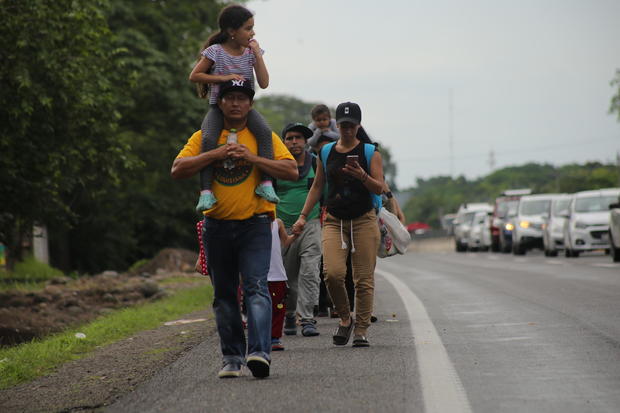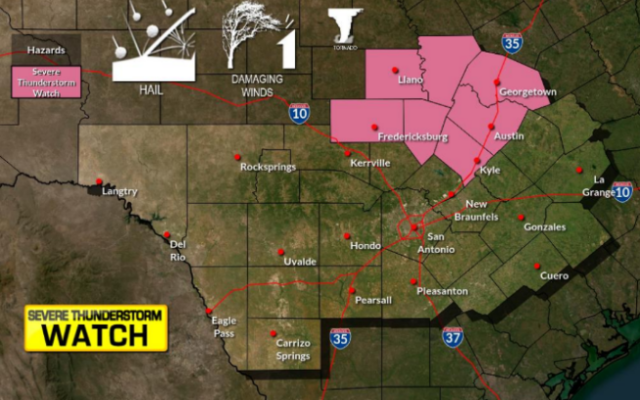U.S. to set up migrant centers in Latin America, sources say

The brick-and-mortar processing centers would serve as regional hubs to screen migrants and determine whether they qualify for programs to enter the U.S. legally, the sources said, requesting anonymity to discuss the plan before its formal announcement.
The centers would be located in key choke-points in Latin America that many migrants transit through en route to the U.S. southern border. U.S. officials have been in touch with countries like Colombia, Ecuador and Guatemala about setting up these centers within their borders, the sources said.
U.S. consular officers would be dispatched to the centers to interview migrants, as well as staff from the host countries, to determine if migrants have a legal path to stay there. Representatives for the White House and the Department of State did not immediately respond to requests for comment on the centers.
One objective of the regional processing centers is to reduce and slow migration to the U.S.-Mexico border, where officials are preparing to discontinue a pandemic-era policy known as Title 42 that has allowed them to swiftly expel migrants over 2.7 million times without processing their asylum claims since March 2020.
The processing centers are expected to be one element of a broader announcement Thursday on how the administration is preparing for the end of Title 42 on May 11, when the expiration of the national COVID-19 public health emergency is set to trigger the policy’s termination. Officials have made internal projections that migrant arrivals to the southern border could spike to between 10,000 and 13,000 per day next month.
In fact, unlawful border crossings have already increased in the lead up to the policy change, especially in Texas’ Rio Grande Valley, a senior U.S. official told CBS News. On Tuesday alone, Border Patrol recorded 7,500 apprehensions of migrants, a more than 40% increase from March’s daily average, the official said.
To deter unlawful crossings after Title 42’s end, the Biden administration has been working to finalize a rule that would disqualify migrants from asylum if they enter the country illegally after failing to seek humanitarian protection in a third country they transited through on their way to the U.S.
Administration officials have argued the policy, which resembles a Trump-era rule, will discourage illegal crossings, and encourage migrants to apply for two initiatives it unveiled in January: a sponsorship program that allows up to 30,000 Cubans, Haitians, Nicaraguans and Venezuelans to fly to the U.S. each month, and a phone app that asylum-seekers in Mexico can use to request entry at ports of entry along the southern border.
The Biden administration earlier this month also launched an initiative to speed up the initial asylum screenings that migrants undergo when they are processed under regular immigration laws, instead of Title 42. Migrants enrolled in the program are being interviewed by U.S. asylum officers telephonically while in Border Patrol custody, a shift from the long-standing practice of waiting until they are placed in long-term facilities.
Earlier this week, U.S. Citizenship and Immigration Services said it would be reassigning nearly 480 employees to help the 1,000-member asylum officer corps conduct these “credible fear” interviews, which determine whether migrants are deported or allowed to seek asylum, according to an internal notice obtained by CBS News.
The processing centers are part of a broader Biden administration campaign to enlist the help of countries in the Western Hemisphere to manage unauthorized migration — a commitment that 20 nations made in the Los Angeles Declaration on Migration and Protection during the Summit of the Americas in June 2022.
Earlier this month, the governments of the U.S., Colombia and Panama announced a two-month operation to curb migrant smuggling in the Darién Gap, a roadless and mountainous jungle that tens of thousands of migrants have traversed over the past year en route to the U.S.-Mexico border.
As part of planning related to Title 42’s end, U.S. officials have considered reinstating the practice of detaining some migrant families with children in detention centers, a controversial policy that the Biden administration discontinued in 2021.
Asked whether the practice would be revived, Secretary of Homeland Security Alejandro Mayorkas told CBS News during an interview last week that “no decision” had been made.
But Mayorkas noted that “deterrence alone will not solve the challenge of migration.”
You Might Also Like



